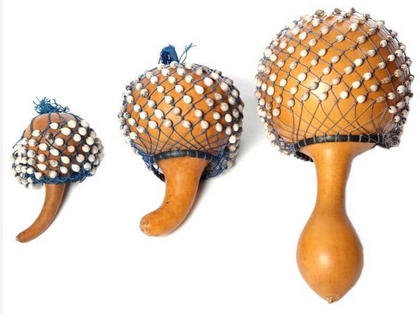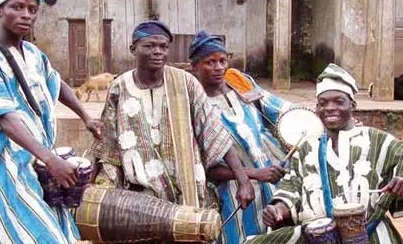
support@yorubalibrary.com
+2348073529208, 07038599574

Yoruba traditional music holds a significant place in the culture and heritage of the Yoruba people. One of the key instruments in this musical tradition is the Sekere, a traditional percussion instrument that plays a crucial role in various aspects of Yoruba life.
The Sekere: An Overview
The Sekere is a traditional Yoruba percussion instrument made from a dried gourd covered with a net of beads or shells. It is renowned for its unique sound and rhythmic capabilities. The instrument is both visually and sonically distinctive, making it an essential part of Yoruba music ensembles.
Historical Significance
The history of the Sekere dates back centuries, with its origins deeply rooted in Yoruba culture. It was traditionally used in various ceremonies and social gatherings, serving both musical and symbolic purposes. The Sekere has been an integral part of events such as weddings, festivals, and religious rites, reflecting the deep connection between music and daily life in Yoruba society.
Craftsmanship and Design
Creating a Sekere requires skill and craftsmanship. The process begins with selecting a suitable gourd, which is then dried and hollowed out. The outer surface is adorned with a net of beads or shells, meticulously strung together to produce the desired sound. Each Sekere is unique, with variations in design and decoration that reflect the creativity and tradition of the maker.
Role in Yoruba Music
In Yoruba music, the Sekere is used to maintain rhythm and enhance the overall sound of the ensemble. It is often played alongside other traditional instruments such as the talking drum, dundun, and bata. The Sekere player uses various techniques to create different rhythms, adding depth and texture to the music. The instrument's ability to produce both sharp and soft sounds makes it versatile and indispensable.
Cultural Importance
Beyond its musical role, the Sekere holds cultural significance. It is a symbol of Yoruba heritage and identity, representing the artistic and spiritual aspects of the culture. The instrument is often passed down through generations, maintaining its place as a treasured heirloom and a link to the past.
Modern Adaptations
In contemporary times, the Sekere continues to be relevant, finding its place in modern music genres and performances. Musicians incorporate the Sekere into various styles, blending traditional sounds with contemporary music. This adaptation ensures that the instrument remains a living part of Yoruba culture, evolving while preserving its roots.
Conclusion
The Sekere is more than just a musical instrument; it is a vital part of Yoruba culture and tradition. Its unique sound, craftsmanship, and cultural significance make it an enduring symbol of Yoruba heritage. By understanding and appreciating the role of the Sekere, we can gain a deeper insight into the rich musical tradition of the Yoruba people.

The unique styles of Yoruba Bata and Dundun dances…

The emergence of new age social media and impact i…